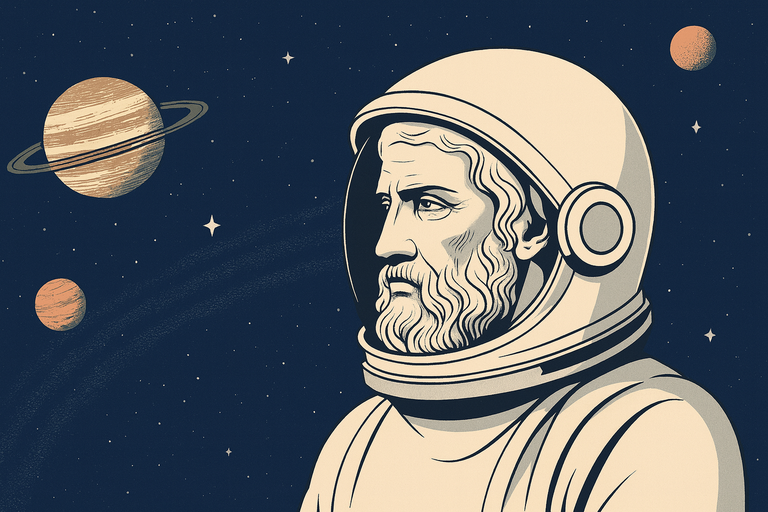Play Panta Rei – Pilot Program
Do you teach humanities at an upper secondary school?
Play Panta Rei is a digital tool that turns philosophical, literary and artistic ideas into short, interactive experiences — each under one minute.
Join the free pilot program for humanities teachers.
Takes under 1 minute. No commitment.

Today, the humanities need new languages to truly connect with students, spark curiosity, and become part of their lived experience.
Play Panta Rei gives teachers a simple, ready-to-use way to bring major humanistic ideas — from philosophy to communication, from literature to sociology and art — to life through short, intuitive digital activities.
Each activity is brief (under one minute), works on any device, and is ready to use without installation or technical setup.
Hundreds of people have already experienced these activities in events and educational settings, with excellent engagement and attention.
With the Play Panta Rei Pilot Program, teachers can start using these activities in class right away — simple, immediate, and accessible to all.
Enrollment closes once we reach the maximum number of pilot schools.
Join the free pilot program for humanities teachers.
Takes under 1 minute. No commitment.
Why it works in class
- Active learning. Students don’t just read — they experience ideas in an intuitive, immediate way.
- Attention and engagement. Short, dynamic activities spark curiosity and help maintain focus.
- Concepts that stay. Interactive, emotionally engaging experiences help students remember and connect ideas to everyday life.
- Easy to integrate. Each activity takes less than a minute and fits class timing with no extra prep.
Frequently asked questions
💰 Is there any cost?
Participation in the pilot program is completely free of charge.
⏱️ How much time does it take?
Just 15 minutes to learn everything you need — after that, each activity takes less than one minute to use in class.
📱 Will it work with my interactive whiteboard (IWB)/tablet?
Yes — it runs on any device with a web browser, no installation required.
🔓 Can we leave the program?
Absolutely — you can opt out whenever you wish, with complete freedom.
Press and Academic Recognition
Press (Italy)
Corriere della Sera, Melamorsicata.it, iSpazio, Macity, Babel Magazine
Academic recognition
"Panta Rei is a good example of how a video game can serve as a stenographic language to better understand philosophy."
– Prof. Patrick J. Coppock, University of Modena and Reggio Emilia"Highly original."
– GALA 2025 (Game and Learning Alliance Conference)
Join the Pilot Program
After you join, you’ll receive a brief 15-minute introduction — simple and practical — that gives you everything you need to start using Play Panta Rei in class straight away. You’ll get all links to apply it immediately.
To get free access to the pilot program,
send an email to:
Play Panta Rei — where ideas become experience.